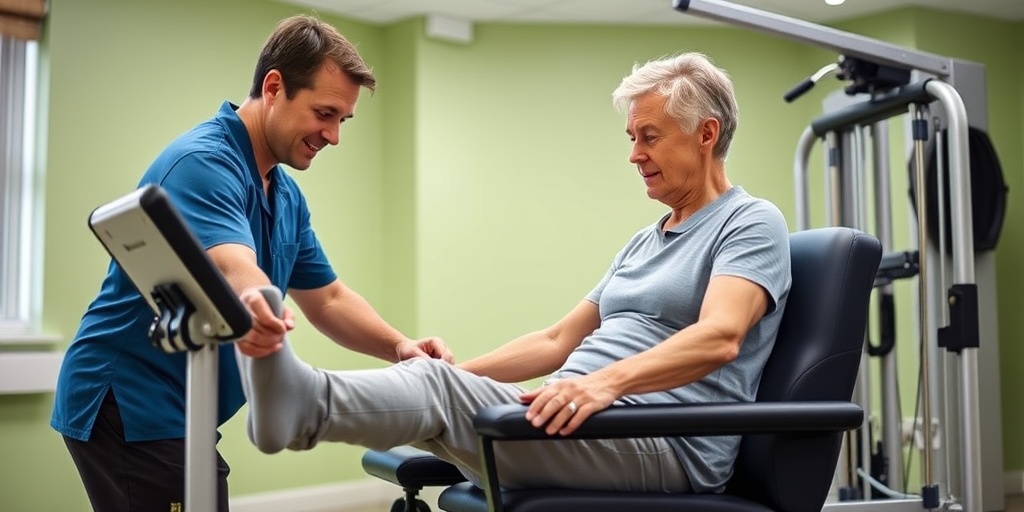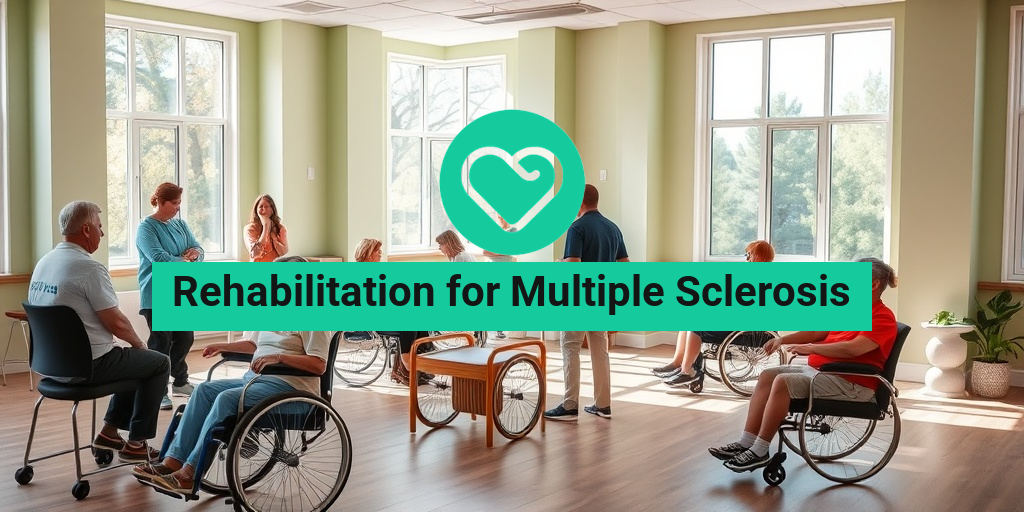What Is Multiple Sclerosis?
Multiple Sclerosis (MS) is a chronic disease that affects the central nervous system, which includes the brain and spinal cord. It occurs when the immune system mistakenly attacks the protective sheath (myelin) that covers nerve fibers, leading to communication problems between the brain and the rest of the body. This disruption can result in a wide range of symptoms, varying significantly from person to person.
MS is classified into several types, including:
- Relapsing-Remitting MS (RRMS): The most common form, characterized by clear episodes of symptom flare-ups followed by periods of remission.
- Secondary Progressive MS (SPMS): Initially begins as RRMS but eventually transitions into a phase where symptoms progressively worsen over time.
- Primary Progressive MS (PPMS): Marked by a gradual worsening of symptoms from the onset, without distinct relapses or remissions.
- Progressive-Relapsing MS (PRMS): A rare form that features a progressive course from the beginning, with occasional relapses.
The exact cause of MS remains unknown, but it is believed to involve a combination of genetic and environmental factors. Research continues to explore potential triggers, including viral infections and vitamin D deficiency.
Symptoms of Multiple Sclerosis
The symptoms of MS can be diverse and unpredictable, often making diagnosis challenging. They can vary widely in severity and duration, and may include:
Physical Symptoms
- Fatigue: One of the most common symptoms, fatigue in MS can be debilitating and is often disproportionate to the level of activity.
- Weakness: Muscle weakness may occur, affecting mobility and daily activities.
- Coordination and Balance Issues: Many individuals experience difficulty with coordination, leading to an increased risk of falls.
- Spasticity: Muscle stiffness and spasms can be uncomfortable and limit movement.
- Numbness and Tingling: These sensations often occur in the limbs and can be distressing.
Visual Symptoms
- Optic Neuritis: Inflammation of the optic nerve can lead to blurred vision or temporary vision loss.
- Diplopia: Double vision is another common visual symptom experienced by those with MS.
Cognitive and Emotional Symptoms
- Cognitive Changes: Some individuals may experience difficulties with memory, attention, and problem-solving.
- Emotional Changes: Depression and anxiety are prevalent among those with MS, often exacerbated by the challenges of living with a chronic illness.
Bladder and Bowel Dysfunction
- Bladder Issues: Many people with MS experience urinary urgency, frequency, or incontinence.
- Bowel Problems: Constipation and bowel incontinence can also occur, impacting quality of life.
Recognizing these symptoms is crucial for early diagnosis and intervention. If you or someone you know is experiencing these signs, it’s essential to consult a healthcare professional for a thorough evaluation.
For those navigating the complexities of MS, rehabilitation for multiple sclerosis can play a vital role in managing symptoms and improving quality of life. Physical therapy for multiple sclerosis, for instance, can help enhance mobility and strength, while also addressing fatigue and spasticity.
For more information on managing MS and exploring treatment options, consider visiting Yesil Health AI, a valuable resource for evidence-based health answers. 🌟

Causes and Risk Factors
Multiple Sclerosis (MS) is a complex neurological condition that affects the central nervous system, leading to a variety of symptoms that can significantly impact daily life. Understanding the causes and risk factors associated with MS is crucial for early detection and effective management.
Genetic Predisposition
Research indicates that genetics play a role in the development of MS. Individuals with a family history of the disease are at a higher risk. While having a relative with MS does not guarantee that one will develop the condition, it does suggest a genetic component that may increase susceptibility.
Environmental Factors
Environmental influences are also significant in the onset of MS. Factors such as geographical location, exposure to sunlight, and vitamin D levels have been studied extensively. For instance, people living in regions with less sunlight exposure tend to have higher rates of MS, possibly due to lower vitamin D levels, which is essential for immune function.
Immune System Dysfunction
MS is classified as an autoimmune disease, where the immune system mistakenly attacks the protective myelin sheath surrounding nerve fibers. This dysfunction can lead to inflammation and damage, resulting in the neurological symptoms characteristic of MS. The exact trigger for this immune response remains unclear, but it is believed to involve a combination of genetic and environmental factors.
Other Risk Factors
- Age: MS is most commonly diagnosed between the ages of 20 and 40.
- Gender: Women are more likely to develop MS than men, with a ratio of approximately 2:1.
- Smoking: Tobacco use has been linked to an increased risk of developing MS.
- Obesity: Higher body mass index (BMI) during adolescence has been associated with a greater risk of MS.
Understanding these causes and risk factors can empower individuals to make informed lifestyle choices and seek early intervention if necessary. 🌍
Importance of Rehabilitation
Rehabilitation for Multiple Sclerosis is a vital component of comprehensive care for individuals living with this condition. The primary goal of rehabilitation is to enhance the quality of life and maximize functional independence. Here’s why rehabilitation is so important:
Improving Physical Function
Physical therapy for multiple sclerosis focuses on improving mobility, strength, and coordination. Tailored exercise programs can help individuals regain lost functions and maintain their physical abilities. Regular physical activity is essential for combating fatigue, a common symptom of MS, and can significantly improve overall well-being.
Managing Symptoms
Rehabilitation also plays a crucial role in managing various symptoms associated with MS, such as:
- Fatigue: Structured rehabilitation programs can help individuals manage fatigue through energy conservation techniques and appropriate exercise.
- Spasticity: Physical therapy can address muscle stiffness and spasms, improving comfort and mobility.
- Balance and Coordination: Rehabilitation can enhance balance and coordination, reducing the risk of falls and injuries.
Emotional and Psychological Support
Living with MS can be emotionally challenging. Rehabilitation often includes psychological support to help individuals cope with the emotional aspects of the disease. Counseling and support groups can provide a safe space for sharing experiences and strategies for managing the psychological impact of MS.
Personalized Care Plans
One of the key benefits of rehabilitation is the development of personalized care plans. These plans are tailored to the individual’s specific needs, taking into account their symptoms, lifestyle, and personal goals. This individualized approach ensures that each person receives the most effective treatment and support.
Enhancing Quality of Life
Ultimately, the importance of rehabilitation for multiple sclerosis lies in its ability to enhance the overall quality of life. By addressing physical, emotional, and social aspects of the disease, rehabilitation empowers individuals to lead fulfilling lives despite the challenges posed by MS. 🌟

Types of Rehabilitation Therapies
Rehabilitation for Multiple Sclerosis (MS) is a crucial aspect of managing the disease and improving the quality of life for those affected. Various rehabilitation therapies can help individuals with MS regain strength, enhance mobility, and manage symptoms effectively. Here, we explore the different types of rehabilitation therapies available for MS patients.
1. Physical Therapy
Physical therapy is one of the most common forms of rehabilitation for multiple sclerosis. It focuses on improving physical function, strength, and mobility. Physical therapists work with patients to develop personalized exercise programs that cater to their specific needs and limitations. These programs may include:
- Strength training: Building muscle strength to support daily activities.
- Balance exercises: Enhancing stability to prevent falls.
- Stretching: Improving flexibility and reducing muscle stiffness.
Physical therapy can also help manage fatigue, a common symptom of MS, by promoting energy conservation techniques and encouraging regular physical activity. 🌟
2. Occupational Therapy
Occupational therapy aims to help individuals with MS maintain their independence in daily activities. Occupational therapists assess the patient’s home and work environments and recommend modifications to make tasks easier and safer. This may include:
- Adaptive equipment: Tools that assist with daily tasks, such as dressing or cooking.
- Energy conservation techniques: Strategies to manage fatigue and prioritize activities.
- Home modifications: Changes to the living space to enhance accessibility.
By focusing on practical skills and adaptations, occupational therapy empowers individuals with MS to lead fulfilling lives. 🏡
3. Speech and Language Therapy
For some individuals with MS, speech and language therapy can be beneficial, especially if they experience difficulties with communication or swallowing. Speech therapists work on:
- Articulation: Improving clarity of speech.
- Swallowing techniques: Ensuring safe eating and drinking.
- Communication strategies: Utilizing alternative methods to enhance interaction.
This therapy can significantly improve the quality of life for those facing communication challenges due to MS. 🗣️
4. Cognitive Rehabilitation
Cognitive rehabilitation focuses on addressing cognitive challenges that may arise from MS, such as memory issues, attention deficits, and problem-solving difficulties. Cognitive therapists employ various strategies, including:
- Memory exercises: Techniques to enhance recall and retention.
- Attention training: Activities designed to improve focus and concentration.
- Problem-solving tasks: Exercises that encourage critical thinking and decision-making.
By targeting cognitive functions, this therapy helps individuals with MS navigate daily challenges more effectively. 🧠
5. Psychological Support
Living with MS can take a toll on mental health, making psychological support an essential component of rehabilitation. Mental health professionals provide:
- Counseling: A safe space to discuss feelings and concerns.
- Support groups: Opportunities to connect with others facing similar challenges.
- Stress management techniques: Strategies to cope with anxiety and depression.
Addressing mental health is vital for overall well-being and can significantly enhance the rehabilitation process. 💚
Physical Therapy for MS
Physical therapy for multiple sclerosis is a cornerstone of rehabilitation, focusing on improving physical function and enhancing the quality of life for those affected by the disease. This therapy is tailored to meet the unique needs of each patient, considering their symptoms and physical capabilities.
Benefits of Physical Therapy
Engaging in physical therapy offers numerous benefits for individuals with MS, including:
- Improved mobility: Regular exercise helps maintain and enhance mobility, making daily activities easier.
- Increased strength: Strength training can counteract muscle weakness and improve overall physical performance.
- Enhanced balance: Balance exercises reduce the risk of falls, a common concern for those with MS.
- Fatigue management: Physical therapists teach energy conservation techniques to help manage fatigue effectively.
By focusing on these areas, physical therapy plays a vital role in the rehabilitation process for multiple sclerosis. 💪
Finding Physical Therapy Near You
If you’re searching for physical therapy for multiple sclerosis near you, consider the following tips:
- Consult your healthcare provider: They can recommend qualified physical therapists experienced in treating MS.
- Research local clinics: Look for rehabilitation centers that specialize in neurological conditions.
- Check reviews: Read patient testimonials to gauge the effectiveness of the therapy offered.
Finding the right physical therapist can make a significant difference in your rehabilitation journey. 🌍
In conclusion, rehabilitation for multiple sclerosis encompasses a variety of therapies, each designed to address specific challenges faced by individuals with the condition. By exploring these options, patients can find the support they need to lead fulfilling lives despite the challenges of MS.

Occupational Therapy Benefits
Occupational therapy (OT) plays a crucial role in rehabilitation for multiple sclerosis (MS), helping individuals regain independence and improve their quality of life. This therapeutic approach focuses on enabling patients to perform daily activities that may have become challenging due to their condition.
Enhancing Daily Living Skills
One of the primary goals of occupational therapy is to enhance daily living skills. Therapists work with patients to develop strategies that make everyday tasks more manageable. This can include:
- Adaptive Techniques: Learning new ways to perform tasks, such as using assistive devices or modifying the environment.
- Energy Conservation: Techniques to manage fatigue, allowing individuals to prioritize and pace their activities.
- Task Simplification: Breaking down complex tasks into smaller, more achievable steps.
Improving Fine Motor Skills
Many individuals with MS experience difficulties with fine motor skills, which can affect their ability to write, button shirts, or use utensils. Occupational therapists employ various exercises and activities to:
- Strengthen Hand Muscles: Targeted exercises can help improve grip strength and dexterity.
- Enhance Coordination: Activities designed to improve hand-eye coordination can make daily tasks easier.
Promoting Cognitive Function
MS can also impact cognitive abilities, including memory and problem-solving skills. Occupational therapy can assist in:
- Cognitive Rehabilitation: Techniques to improve memory, attention, and executive function.
- Use of Technology: Introducing apps and tools that aid in organization and task management.
Facilitating Social Participation
Social engagement is vital for emotional well-being. Occupational therapists encourage participation in social activities by:
- Identifying Interests: Helping patients discover hobbies and activities that they enjoy.
- Building Social Skills: Providing strategies to enhance communication and interaction with others.
Emotional Support and Counseling
Living with multiple sclerosis can be emotionally challenging. The unpredictability of the disease often leads to feelings of anxiety, depression, and isolation. Therefore, emotional support and counseling are integral components of rehabilitation for multiple sclerosis.
Understanding the Emotional Impact of MS
Many individuals diagnosed with MS experience a range of emotions, from shock and denial to anger and sadness. Understanding these feelings is the first step toward coping effectively. Counseling can provide a safe space for individuals to:
- Express Their Feelings: Talking about their experiences can help alleviate feelings of isolation.
- Process Their Diagnosis: A counselor can guide patients through the emotional landscape of living with MS.
Developing Coping Strategies
Effective coping strategies are essential for managing the emotional challenges of MS. Counselors can help patients develop personalized strategies, such as:
- Mindfulness and Relaxation Techniques: Practices like meditation and deep breathing can reduce stress and anxiety.
- Support Networks: Encouraging patients to connect with support groups or communities can foster a sense of belonging.
Addressing Relationship Dynamics
MS can affect not only the individual but also their relationships with family and friends. Counseling can assist in:
- Improving Communication: Teaching patients how to express their needs and feelings to loved ones.
- Strengthening Relationships: Providing tools to navigate the changes in dynamics that MS may bring.
Accessing Resources and Support
Counselors can also help patients access additional resources, such as:
- Support Groups: Connecting individuals with others who understand their experiences.
- Educational Resources: Providing information about MS and its management.
Incorporating both occupational therapy and emotional support into the rehabilitation process can significantly enhance the overall well-being of individuals living with multiple sclerosis. By addressing both physical and emotional needs, patients can lead more fulfilling lives despite the challenges posed by this condition. 🌟

Frequently Asked Questions about Rehabilitation for Multiple Sclerosis
What is Rehabilitation for Multiple Sclerosis?
Rehabilitation for Multiple Sclerosis involves a range of therapies and interventions designed to help individuals manage their symptoms, improve their quality of life, and maintain independence. This can include physical therapy, occupational therapy, and speech therapy, tailored to the specific needs of the patient.
How does physical therapy help with Multiple Sclerosis?
Physical therapy for multiple sclerosis focuses on improving mobility, strength, and coordination. Therapists work with patients to develop personalized exercise programs that can help alleviate symptoms such as fatigue, muscle weakness, and balance issues.
Are there specific treatments for Multiple Sclerosis symptoms?
Yes, there are various treatments for multiple sclerosis symptoms that can be utilized alongside rehabilitation. These may include medications, lifestyle changes, and complementary therapies aimed at managing pain, fatigue, and other symptoms associated with the condition.
What types of rehabilitation programs are available?
- Inpatient Rehabilitation: Intensive therapy in a hospital or rehabilitation facility.
- Outpatient Rehabilitation: Therapy sessions that allow patients to return home after treatment.
- Home-Based Rehabilitation: Services provided in the comfort of the patient’s home.
How can I find physical therapy for Multiple Sclerosis near me?
To find physical therapy for multiple sclerosis near you, consider searching online directories, consulting with your healthcare provider, or contacting local MS support groups for recommendations.
What role does occupational therapy play in MS rehabilitation?
Occupational therapy helps individuals with Multiple Sclerosis adapt to daily activities and improve their ability to perform tasks at home and work. Therapists may provide strategies to manage fatigue and cognitive challenges, enhancing overall independence.
Can rehabilitation help during a Multiple Sclerosis flare-up?
Yes, rehabilitation can be beneficial during a multiple sclerosis flare. Therapists can provide strategies to manage symptoms and maintain function, even during periods of increased disease activity.
What are the side effects of treatments for Multiple Sclerosis?
While many treatments for Multiple Sclerosis can be effective, they may also come with side effects. It’s important to discuss these potential side effects with your healthcare provider to make informed decisions about your treatment plan.
How can I support someone undergoing rehabilitation for Multiple Sclerosis?
Supporting someone with Multiple Sclerosis can involve being there emotionally, helping with daily tasks, and encouraging them to stick to their rehabilitation program. Understanding their challenges and being patient can make a significant difference in their recovery journey.
Where can I find more information about Multiple Sclerosis rehabilitation?
For more information on rehabilitation for multiple sclerosis, consider visiting reputable health websites, contacting local MS societies, or speaking with healthcare professionals who specialize in MS care.




